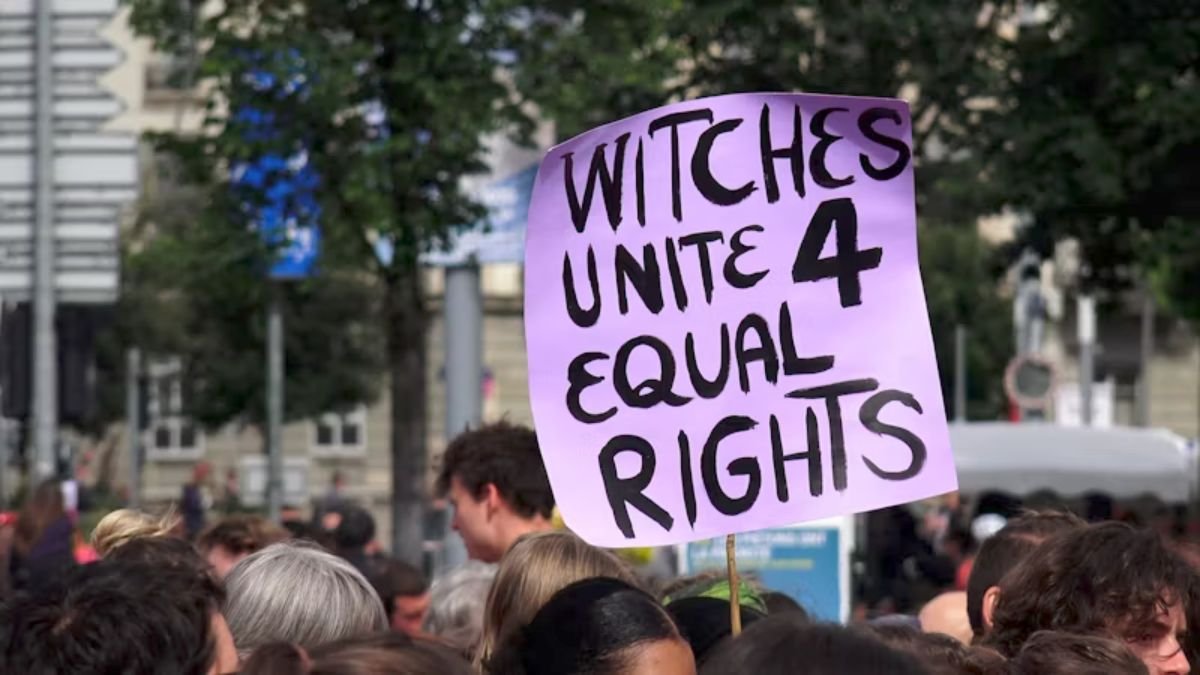At its foundation, feminism promotes gender equality. In order to create a society in which a person’s rights and opportunities are not based on their gender, it aims to address and correct the systematic injustices that have historically oppressed women and marginalised genders. But as the movement becomes more well-known, it has also been misunderstood and abused. The concepts of equity and justice are the foundation of true feminism, but the rise of “pseudo feminism” warps these ideals and presents a version that frequently undercuts its original intent. In addition to misrepresenting the cause, pseudo feminism runs the risk of offending possible supporters and impeding the advancement of real gender equality. Maintaining the integrity of this significant social movement requires an understanding of the differences between genuine feminism and pseudo-feminism. By examining the myths and actual instances of pseudo-feminism, we can have a better understanding of how to maintain the actual values of inclusivity and equality.
Understanding Pseudo Feminism
Pseudo feminism is when individuals or groups claim to advocate for feminism but their actions contradict its fundamental principle of equality. This can involve targeting men indiscriminately, advocating selective equality for women’s rights, or using feminism as a platform for dominance rather than equality. These behaviors dilute the legitimacy of feminism, fuel misconceptions, and harm the movement’s progress by promoting the idea that all men are inherently oppressive.
Real-World Examples of Pseudo Feminism
Pseudofeminism can manifest in various ways, including hashtag activism, selective advocacy in workplaces, exclusion of transgender and non-binary individuals, unfair legal and custody battles, tokenism in leadership roles, and glorifying gender stereotypes in media. Social media can amplify pseudo feminist narratives, such as false accusations during the #MeToo movement, which undermines the credibility of survivors and detracts from the movement’s core message. The “All Men Are Trash” narrative, a common trope on social media, alienates potential allies and perpetuates divisiveness. In professional settings, pseudo feminism may advocate for women’s rights while disregarding or trivializing similar issues faced by men. For example, workplace harassment policies may focus solely on protecting women while ignoring male employees who face inappropriate behavior or discrimination. Pseudofeminism can also influence unfair legal and custody battles, where courts are biased towards mothers even in cases where fathers may be more suitable caregivers. Tokenism in leadership roles can be seen as promoting women to leadership roles purely as a performative act, rather than valuing their contributions. Lastly, some movies and TV shows may glorify gender stereotypes in media, portraying “strong female characters” by vilifying male characters or presenting women as flawless superheroes. These examples highlight the potential dangers of pseudofeminism and the need for more inclusive and diverse representation of all genders.
The Effects of Pseudo Feminism
Pseudo-feminism, which often distorts the core principles of feminism, can lead to several harmful outcomes. It damages the credibility of feminism by misrepresenting its ideals, creating skepticism and resistance towards the movement. The media often sensationalizes pseudo-feminist statements, alienating potential allies and painting the movement in a negative light. Pseudo-feminism often excludes or antagonizes potential supporters, as it often frames men as inherently oppressive, creating unnecessary hostility. It also ignores intersectionality, which is crucial in addressing issues faced by women of different races, classes, and orientations. Pseudo-feminism maintains inequality by advocating for female superiority or trivializing issues faced by men, perpetuating imbalance rather than resolving it. It creates new hierarchies, favoring one gender over another, undermining the fundamental goal of equality and perpetuating division. The backlash effect can lead to resentment and resistance among those who feel targeted or excluded, further polarizing society. Therefore, it is essential to recognize the importance of feminism in its pursuit of equality and inclusivity.
Striving for True Feminism
To combat pseudo feminism, it is crucial to return to the roots of the movement and practice its principles authentically. This involves raising awareness about feminism, correcting misconceptions, and engaging with feminist literature, history, and diverse perspectives. Empathy is essential in understanding the experiences of all genders and advocating for solutions that benefit everyone. True feminism thrives on the ability to listen and learn from others’ struggles, including recognizing the unique challenges faced by men, transgender individuals, and non-binary people in patriarchal systems. Inclusivity is essential in feminism, addressing the intersectionality of gender, race, class, sexuality, and other identities. It is about creating spaces where everyone’s voice is valued and heard, and no group is left behind in the fight for equality. Accountability is vital in holding individuals and organizations accountable for actions that contradict feminist principles while offering pathways for growth and understanding. Collaboration is essential in building alliances with individuals and groups across genders and social identities, encouraging dialogue, partnerships, and cooperative efforts. Advocating for structural change is crucial in addressing systemic issues such as wage gaps, underrepresentation in leadership, gender-based violence, and lack of access to education and healthcare. By embracing these principles, the feminist movement can remain true to its mission and continue to make strides toward genuine equality.
Feminism is more than just a movement, it is a dedication to establishing an equitable, respectful, and opportunity-rich world for all people, regardless of gender. But the emergence of pseudo-feminism poses a threat to these initiatives by exploiting the discourse of equality to pursue goals that are self-serving or polarising. This misrepresented form of feminism alienates potential supporters who might otherwise stand together and takes attention away from the important concerns at hand. It is essential to identify and combat pseudofeminist inclinations in order to proceed. Collaboration, empathy, and inclusivity are essential components of true feminism. By adopting these ideals, we can all work together to eliminate structural injustices and create a society that really respects the concepts of justice and equity for all. Only by staying true to the movement’s foundational ideals can feminism achieve its transformative potential.





